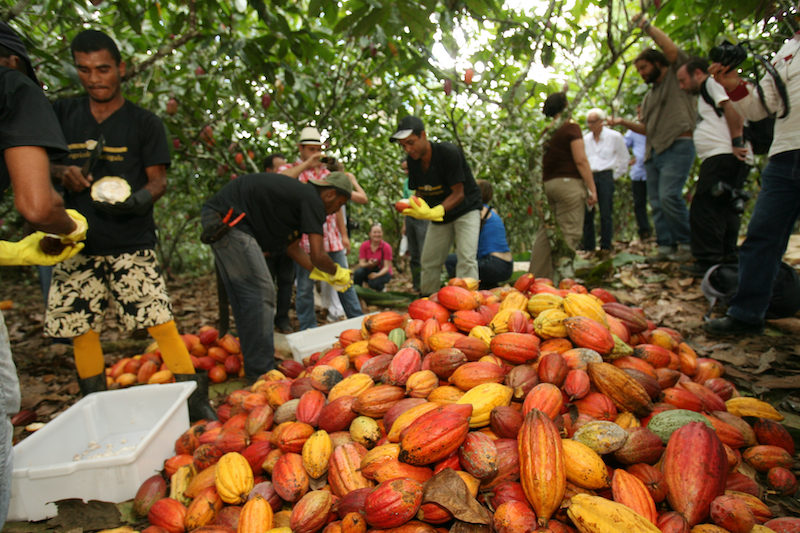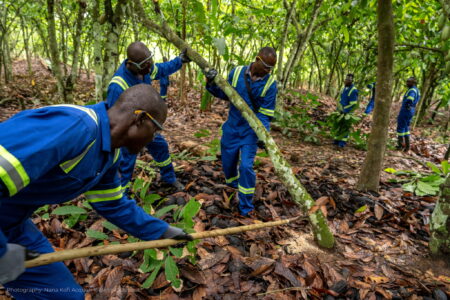Olam faces prosecution over alleged child labour within Brazilian supply chains

cocoa farming in Bahia. Pic: Shutterstock
Olam International has reportedly found itself among one of three food companies being sued by Brazilian state prosecutors over claims of failing to address child labour concerns within its supply chains – which the company strongly denies, writes Neill Barston.
According to report from the Thomson Reuters Foundation, damages totalling $58 million are being sought against the global agri-business, which authorities first raised in January of this year, and has continued in the subsequent months.
The case has centred on a 2018 study from Brazil’s Federal Labor Prosecution Office and International Labour Organisation that allegedly reveal child labour within the country’s cocoa sector, which comes amid the UN’s official year of eradicating child labour across global markets.
As Reuters noted, in its defence within the case, Olam cited its head of cocoa Gerard Manley stating that the business could trace its cocoa from all of its cocoa around the world – which accounts for around 12% of international supplies.
Speaking to Confectionery Production, the business, which has just filed to be listed on the London Stock Exchange, said that it was unable to comment on specific details relating to the case, but it is continuing to strongly defend the allegations, stressing that the contested issue related to third party suppliers.
A spokesperson for Olam said: “Although we can’t comment on the particulars of ongoing litigation, we vehemently deny the allegations made in this action and maintain that they have no merit in fact or in law. We have a zero-tolerance policy for forced or slave labour in our supply chain. If we were to identify any instances, we would immediately take action, including notifying the appropriate authorities. We also do not engage with any supplier on the Brazilian government’s blacklist.
“On the matter of traceability, as publicly stated in our Cocoa Compass Sustainability report, we can track all the cocoa we purchase directly from farmer groups or cooperatives through our traceability system. (118,287 metric tonnes of cocoa digitally traced to farm gate in 2019/20).
“However, the Reuters article is referring to the indirect supply chain in Brazil (i.e. cocoa bought through third parties which can include several intermediaries). But we cannot comment further on this as it involves the legal case.
“We absolutely support human rights across our supply chains. That’s why, we’re calling for stronger legislation in producing countries to achieve greater levels of transparency and help strengthen our efforts to address issues like child labour.”



